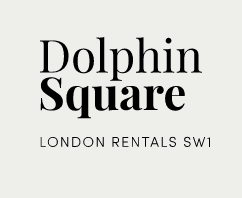Many travellers are taking to Central London for short stays, whether it is work-related, as a place to stay during renovations, or perhaps before a permanent relocation. It can be daunting trying to navigate your way through all you need to do before signing the dotted line.
As one of Central London’s top serviced apartment providers, Dolphin Square is committed to helping you find the ideal apartment for your short stay in the capital. We’ve created this blog, specifically for serviced apartment rentals, to help make your temporary relocation all the more convenient. We’ll be covering the most important aspects you’ll need to consider - including document requirements for your short stay, your responsibilities as a short let tenant, and also what you should realistically expect from your short term rental apartment in Central London.
If you need a concise, practical checklist to help you with your short term rental, read on to discover the most important aspects to consider:
What to expect from serviced apartments in Central London
A serviced apartment is the ideal solution for travellers seeking convenience and affordability, without compromising on quality. Hotels have historically been the ‘go-to’ for international short stays, however, more people have started to opt for serviced apartments thanks to the privacy, affordability, and “home-away-from-home” environment they offer.
When you’re looking for a serviced apartment to rent in Central London, you should consider the below aspects before committing:
Guest amenities
Does your potential serviced apartment building offer guest amenities? On-site amenities offer unsurpassed value and a level of convenience that truly adds to the London living experience.
At Dolphin Square, you will have access to our incredible array of guest facilities - including our on-site gym, bar and grill, and of course our Moroccan spa.
Save time and money by choosing a serviced apartment provider who offers on-site guest amenities - allowing you to indulge when you want to, without leaving the building.
Location
A well-located apartment is the best way to make your stay convenient. Dolphin Square’s prime location places Pimlico Underground Station at your doorstep, making commutes into and throughout all of London’s boroughs oh-so-convenient.
What’s more, we are located outside of the congestion zone - making your travel even more affordable and easy to navigate. This is especially useful for international travellers who might not be familiar with congestion zone charges.
Ensure your chosen serviced apartment location is fit for purpose. Consider your daily commute to the office, and how easy it will be to find your way into the city centre for leisure activities.
Inclusions on your tenancy agreement
A serviced apartment rental may include utilities such as water, electricity, and gas - incorporated into your monthly or weekly rental amount.
Ask your potential landlord or letting agent about what will be included in your rental to get a better idea of the value it truly offers. Also, be sure to enquire about parking spaces if you are a driver. At Dolphin Square, we offer a secure underground parking lot available to our residents and tenants for a nominal fee.
Now that you have a better understanding of the important criteria for your Central London serviced apartment hunt, let’s take a closer look at the finer details of your temporary relocation to the capital.
First Time Renters Checklist: Serviced Apartment
As a first time renter in the capital, you will need to consider a few important aspects of your prospective tenancy to ensure you get the most from your stay, and that it is a memorable and enjoyable one.
Documents needed
Regardless of how long you will be renting, there are four documents you will need to supply in order to satisfy the requirements of the Right to Rent check.
It’s a good idea to have the below documents to hand before you apply for any rental apartment:
1) References
You will typically require two references - one from your employer and another from your previous landlord or letting agent.
Tenant reference checks are conducted to give the prospective landlord or letting agent a better understanding of your previous tenancy behaviours, as well as to confirm your employment at the time of application, and that your employment will continue during your stay.
Employer references are accepted in a standard letter format - written or typed up on a company letterhead (the latter is often preferred.) These references should detail your current role, your employment period, and sometimes your salary
Former landlord or letting agency references are also accepted in the format of a signed letter. Your tenancy reference will confirm your payment behaviour i.e. - paying in full and on time each month, as well as your overall conduct during your stay.
2) Proof of address
Proof of residence checks are accepted in the format of tenancy agreement - current or previous. You could also choose to supply past bills which indicate your current address. Proof of address checks help prospective landlords and letting agents confirm your tenancy history.
International travellers may want to supply past bills or bank statements to reflect their international residence - but it’s worth bearing in mind that some landlords or letting agents may require a higher deposit or upfront rental payments if you are unable to provide any of these documents. It is always advised to check directly with them.
3) Identity documentsYou will be required to provide either your current valid passport or driving license. You will also need to supply any current VISAs or work permits you have, which indicate your right to rent in the UK.
The identity verification process will be conducted on all adults whose name is set to appear on the tenancy agreement, so it might be a good idea to ensure you have identity documents for all adults before applying for your Central London rental.
4) Proof of incomeProof of income checks help prospective landlords and letting agents determine your rental affordability, and also assure them that you are in work and will continue to receive a salary for the duration of your stay. Payslips are the most widely accepted format for proof of income.
Paying your deposit
A deposit is typically required for any tenancy, and the ordinary deposit requirement is an upfront payment of the equivalent of 5 weeks rent.
The important thing to remember is that your deposit must be held in a secure ‘Tenancy Deposit Scheme’ by either the landlord or letting agent. Ask for confirmation of the deposit scheme they use, and ensure you have allocated a sufficient proportion of your move-in budget for this initial lump sum.
You will normally make your deposit payment through a bank transfer, but be sure to check this with the landlord or letting agent.
What to look for during a viewing
Once you’ve booked your serviced apartment viewing, be sure to pay close attention to the finer details of the apartment.
- Inspect windows and doors to ensure they are in working order and not damaged
- Take a close look at the furnishings and appliances to assess their condition and highlight any pre-existing damage.
- Check to see that the taps, lights, and any electronic entry systems are working.
- Check that the apartment is fitted with fire alarms and CO2 detectors and that they are in working order.
- Check for any signs of mould, water damage, rodents, or pests.
Your viewing is the most opportune time to assess the commute you would need to commit to if you’re relocating for work purposes. It’ll also be the best time to get a real-world look at the noise and traffic levels, as well as see what your day to day living environment might look like.
Questions to ask before you sign your lease
You might want to ask these questions on the day of your viewing, but if that's not possible, just jot down the below as a reminder to get answers on these important questions:
- What is the set payment date when rent is due each month? The landlord or letting agent should also provide you with a copy of their banking details (if you are paying in by direct deposit each month), or they will need to walk you through the process of setting up a recurring debit.
- How to report an emergency or urgent problem? It’s best to be prepared, so make sure you keep a copy of all the emergency contacts you might possibly need during your stay.
- Ask for certification - including the EPC (energy performance certificate), gas, and electrical safety certificates. The landlord or letting agent might not have these at hand during the viewing, so ensure you follow up afterwards and that you receive these essential certificates.
- What is the process for ending tenancy? This may seem a bit odd to ask at the beginning of your tenancy, but it’s good to be prepared for the eventuality of moving out.
- What are your tenant insurance responsibilities? Most landlords will have their own insurance policies in place, covering the building itself. You may need to take out liability insurance or home contents insurance - but be sure to ask what the specific requirements are on your tenancy agreement.
- What are your specific tenant responsibilities? You might be required to accommodate a recurring inspection or take out a specific type of insurance. Be sure you’re familiar with any additional responsibilities your rental agreement stipulates.
- What is included in your apartment rental price? Make sure you are comfortable with and fully understand all the inclusions and exclusions of your monthly or weekly rental price. Also, if something has been verbally agreed between yourself and the landlord or letting agent, be sure it’s reflected in writing on your tenancy agreement.
Moving in & moving out - your obligations
Last, but certainly not least, is ensuring you understand your obligations for moving in, as well as moving out. This will include responsibilities surrounding:
- Your tenancy agreement
- Inventory
- Meter readings
- Contact details
- Confirmation that your deposit has been added to a recognised Tenancy Deposit Scheme
- Confirmation of the bills you will be expected to pay - including all utilities
- Code of practice/code of conduct
- Inspection certificates
- EPC and gas safety certificates
- Smoke and CO2 alarm certificates
- Any set rental increases you can expect during your stay
- The procedure required to end your tenancy
Dolphin Square short lets: ticks all the boxes
Undoubtedly, there is a lot to consider before, during, and after your serviced apartment rental.
The UK government has provided this useful resource that should be supplied to tenants by all landlords and letting agents, and clearly explains every aspect you need to cover for your stay in Central London.
At Dolphin House, our team of experts are available to help you find your ideal serviced apartment - regardless of why - or for how long - you need it. Why not reach out to us today, or book a viewing?
You have so much to look forward to during your stay with us, and we’d be delighted to show you what’s in store. We can’t wait to welcome you to Dolphin Square!




